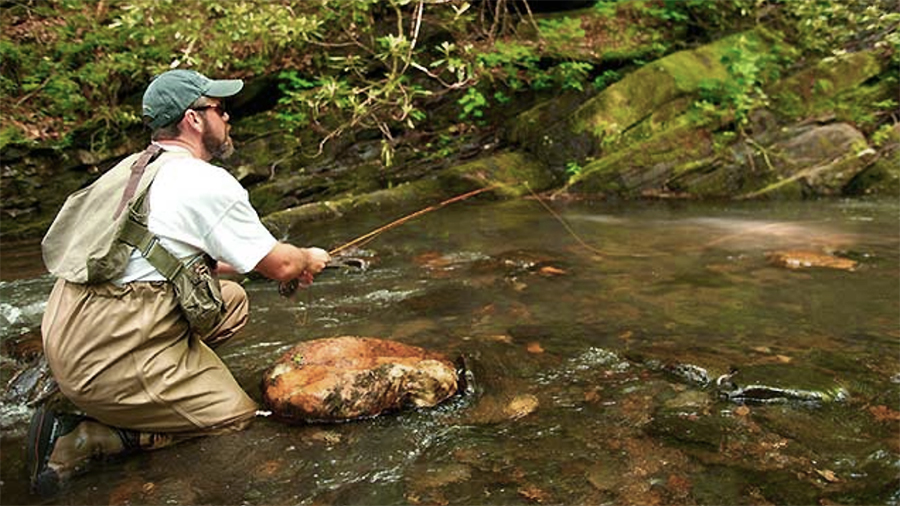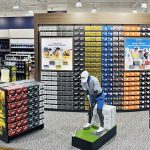SGB reached out to key leaders in the Active Lifestyle space to share their outlook for 2023. In the second installment, here are a series of responses that gauge what they see for the year ahead. To read the first installment, go here.
Travis Avery
Sales & Marketing Director, Sawyer Products
In 2023, consumers will use more purchasing power and spend their dollars with brands that are doing more good in the world and that align with their personal values. As connectivity continues to grow in the outdoors, consumers will continue to seek unplugged experiences. Many learned during high-pandemic times what it was like to truly unplug. Sawyer has anecdotally seen the sales and interest to back this trend on outdoor essentials products going into 2023.
All studies about participation in the outdoors during the pandemic have concluded that people are getting outside and learning a new way to not only be healthier but blow off steam. In January 2021, the NPD Group and Civic Science asked over 1,000 consumers about their intentions and almost every category had a substantial gain in intention.
Ulrika Björk
CEO, Polygiene
Consumers want more transparency from brands and clearer ways to how they can make a positive environmental impact before making a purchase. By making durable garments available to consumers that are using innovative and natural technologies, can stay fresher and inherently buy fewer clothes because their existing garments last longer, the textile industry can reduce its production phase and lessen its environmental impact. We should only consume new products as a last resort. Our technologies allow brands to create garments not only with longer lifespans but with enhancements that add value for the consumer.”
Especially as the second-hand market continues to grow, consumers can feel confident their purchases and pre-loved garments and gear can continue to be enjoyed. This is not just a trend but a move to a more circular way of thinking and living which Polygiene is proud to help support with its freshness technologies.
Niclas Bornling
GM North America & Head Of Global Brand, Houdini Sportswear
2023 will be a year of continued uncertainty as we navigate the aftermath of the pandemic-induced supply chain challenges and getting to grips with “normalized” consumer demand. As the pandemic forced us to isolate ourselves in our homes, the need to escape to the outdoors created an artificial increase in demand for outdoor gear. Many brands and retailers adapted their organizations and order stock accordingly. As a result, we’ll see major shake-ups in the industry when brands and retailers are forced to scale back again. We’ll probably see companies lay off part of their workforce, and we’ll definitely need to deal with industry-wide discounting as the market is flooded with merchandise.
Due to inflation and continued economic uncertainty, consumers will not increase their spending, but we’ll also see a shift toward consumers looking for quality and versatility when they do make a purchase. This is not only driven by a decrease in household spending power but also very much fueled by demand for sustainable goods that lasts longer, gear that works everywhere and product that does less damage to the planet.
We’ve already witnessed some interesting changes to retail in 2022 with D2C businesses venturing into wholesale and pure-play e-commerce actors adding brick-and-mortar to their strategies. That trend will continue to affect the retail landscape, and we’ll see more brands and retailers balancing their channel portfolios.
Buyers and brands alike are showing a genuine desire to work together to land in a better place as it pertains to the supply chain. Buyers don’t want to over-book product in the hopes that “late” or “canceled” items will offset the amount they order and they land in a healthy place. Buyers don’t like to cancel orders nearly as much as brands dislike receiving cancellations. It’s bad for everyone. So the trend of cooperation is evident and necessary to forge a better future in 2023.
Jeff Chen
CEO & Co-Founder, NetVirta
We’re seeing return rates across the fashion industry remain alarmingly high, and athletic apparel and footwear are no exception. Nike’s inventory reached record levels in 2022, and we’ll likely see post-holiday returns continue to spike for other sportswear brands well into the new year. The sporting goods industry doesn’t usually shy away from innovation, so I would expect to see many major brands adopting new fit technologies, such as mobile 3D body scanning, to address the returns problem in 2023.
Philip Curry
Founder & CEO, Astral
Consumers are more conscientious and loyal than ever. Considerations like product ingredients, manufacturing standards and brand partnerships will continue to be of utmost importance moving into this new year, and we will ensure transparency through all of our practices. We expect supply and demand volatility to abate and become more stable allowing for more consistent inventory during high-traffic seasons as well as the rise of consumer spending in brick-and-mortar shops where they may experience community and engagement offline. This means we, as an outdoor industry, must redefine what community looks like from the customer journey online all the way to our retail partners who meet the customer in person.
Steve Lee
SVP Of Sales At Performance Apparel LLC (Hot Chillys)
Our outlook for the year ahead is cautiously optimistic. Supply chain issues continue to linger, but we have made significant adjustments to our processes to guard against any negative impact. Including, but not limited to, bringing in significant amounts of Fall 2023 inventory in Q1 of 2023 so that we have all of our best-selling products available for early shipment in Fall 2023.
Consumer buying does not appear to be quite as strong as last year when consumers were buying based on FOMO and a pent-up desire to Get Out after the worst of the pandemic was behind us. Still, they have been showing up big time since the holiday season and strong winter weather continues to help winter sports brands like Hot Chillys. We anticipate sales to be similar to, but still above, what we saw in 2018 and 2019.
Nate Pund
Managing Director, Consumer, Food and Retail Group and Global Head of the Active Lifestyle Investment Banking Team, Houlihan Lokey
I expect the Outdoor Industry will continue to excel in 2023 as secular tailwinds support increased outdoor, sports and fitness activity. However, the M&A market was hampered late last year, and I foresee many of these issues will still be impacting the market in 2023. The issues are a further deceleration of sales velocity, continued supply chain issues, inventory pressure, particularly at the retail level, uncertainty about consumer spending, and the general pullback by buyers and transaction lenders out of fear of a recession. That said, we completed a number of deals here at Houlihan Lokey last year and have a full pipeline for this next year. We believe great companies will always attract a premium valuation and that the Outdoor Industry continues to be a great place to invest.
Aaron Provine
President, Geartrade.com
It’s no secret there are going to be some tough days for the traditional retail market in Q1, and a variety of tactics will be used to deal with the widespread inventory glut. What’s interesting though is that those actions may be indicative of a broader change in the consumer relationship. Instead of consumers reacting to promotional behavior and innovation, brands are going to be the ones reacting to supply chain issues and changing demand. Consumers have always been smarter than people think and they know the deals are coming.
At Geartrade, we’re seeing the script flip as well. The used gear marketplace is in the midst of a transition from a place to sell old gear, to an affordable entry point for new outdoor consumers. We’re bullish on another strong year of growth.
Todd Starcevich
Head of North America, Reima
I think there is an overall conservativeness in the market that is bigger than just the outdoor space that will change consumption behavior in 2023. However, I believe there is still a behavior that was accelerated during the pandemic years around getting outdoors more that will persist. This is driven by a number of factors, including flexible working arrangements (remote work, limited in-office hours, etc). In general, I think the consumer continues to get smarter about what sustainability means to them and how to find it in brands and products. This means the willingness to spend on quality and sustainability will continue to grow in 2023.
In the kid’s space, I think we can maintain a level of optimism, as more parents realize the value of investing in quality outerwear and gear for their children to increase their children’s happiness and pursuit of outdoor activity. The consumer will continue to seek/find brands that are focused on designing products specifically for the child and how they move and stay comfortable while exploring the outdoors.
Photo courtesy North Carolina Wildlife Resources Commission
















